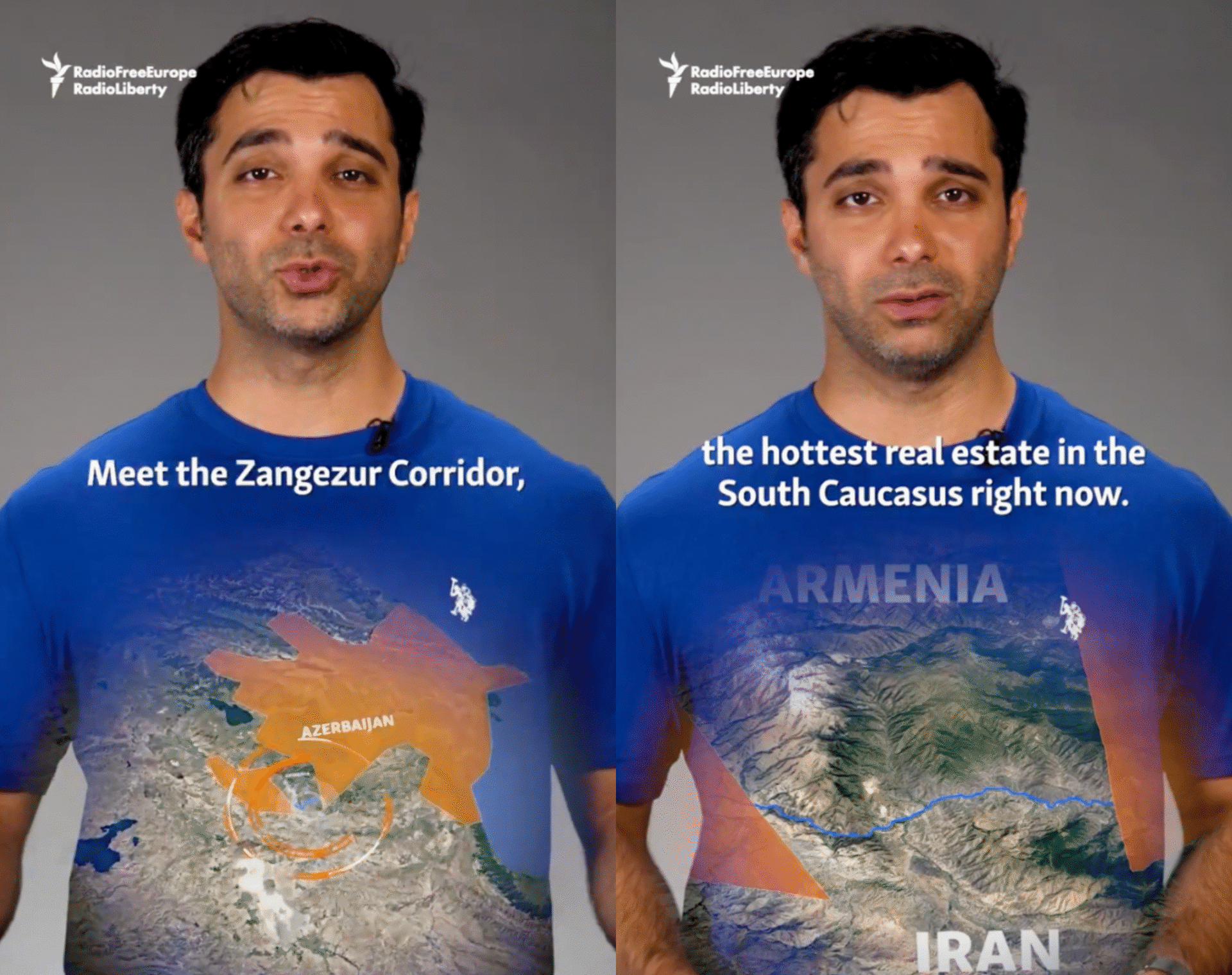On June 25, U.S.-funded Radio Free Europe/Radio Liberty (RFE/RL) published a video on X that sparked backlash for echoing Azerbaijani government narratives by referring to the proposed route through Armenia’s Syunik province as the “Zangezur Corridor.”
The video — narrated by RFE/RL correspondents Kian Sharifi and Kenan Cerimagic — was captioned: “Iran fears it. Turkey dreams of it. The US wants a piece of it. Welcome to Zangezur.”
While the video does not explicitly rename Syunik, it frames the corridor project itself as running “right through Armenia,” describing the region as the “hottest real estate in the South Caucasus.” It emphasizes the corridor’s strategic importance as a link between Azerbaijan and its Nakhichevan exclave, while also calling it the shortest land route from Russia to the Persian Gulf and India, and a vital connection point for Europe, Central Asia, and China.
The video claims the 2020 ceasefire agreement “promised a new route, the Zangezur Corridor, right through Armenia,” and presents potential U.S. oversight of the corridor as a bold geopolitical move — despite acknowledging that it has triggered alarm in Iran, Armenia, and even Azerbaijan. One “expert” in the video dismisses the plan as a “reckless real estate deal” with “0 plan for what happens next.”
It offers no acknowledgment of Armenia’s sovereignty over Syunik, nor of the widespread Armenian opposition to any foreign-controlled or extraterritorial corridor.
The corridor is portrayed as a “dream come true” for Turkey — enabling a direct land bridge to its Turkic allies — and a “nightmare” for Iran, which, the video claims, risks being boxed out of regional influence. It also frames the corridor as a strategic prize the United States hopes to manage, while brushing over the complex legal, political, and security concerns of the region.
The sharpest condemnation came from French Ambassador to Armenia Olivier Decottignies, who publicly rebuked the post with a quote tweet: “The name is Syunik, Sir, and it is Armenia’s sovereign territory. Let that sink in.”
Critics condemned RFE/RL for legitimizing Azerbaijan’s corridor narrative, erasing Armenian sovereignty, downplaying Armenian concerns, and promoting a dangerously oversimplified geopolitical spin — all under the banner of U.S.-funded Western journalism.
To note, Radio Free Europe operates an Armenian-language service known as Azatutyun.


